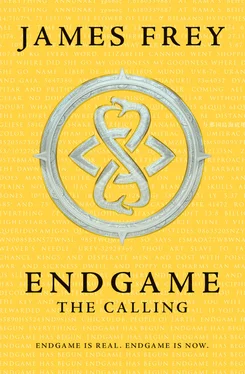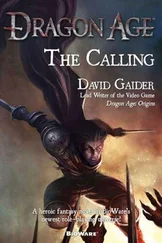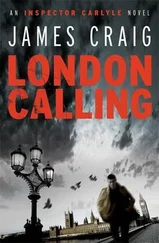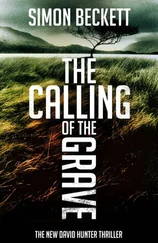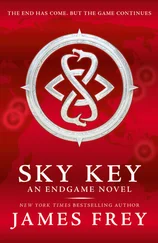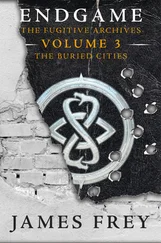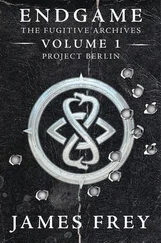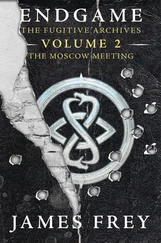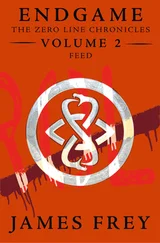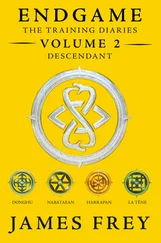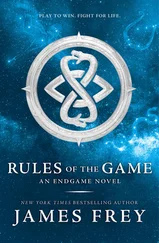1 ...6 7 8 10 11 12 ...19 Duda downs one of the vodkas and says quietly so only they can hear, “Oh, little boy. I see you dressed like a man, but you don’t fool me.” Maccabee takes a deep breath and slows his heart rate, as he has been trained to do. Killing, if it becomes necessary, is best done in a calm manner, and with smooth, easy movements. He did it for the first time at age 10, and has done it 44 more times in the years since.
The man leans into his seat, drinks the other vodka and both champagnes. He rolls toward the window and closes his eyes.
The plane taxis, takes off, reaches cruising altitude. The pretty woman minds her business. And for a while Maccabee does too.
After about an hour, though, he leans across the aisle and says in English, “I’m sorry about all that, Miss …”
She smiles. “Miss Pawlek.” He can tell that she thinks he is at least 22 or 23. Most people do, especially young women.
“Miss Pawlek.”
“Why should you be sorry? You behaved perfectly.”
“I wanted to punch him.”
“We’re on a plane. You can’t.”
They start to talk. Maccabee quickly realizes that she is tired of talking about the meteorite that has scarred Warsaw, or the 11 others that have rattled the world. It’s all anyone has been able to talk or think about for a week, so he lets it lie.
Instead, Maccabee practices a subtle form of interrogation on her. He has been trained to use techniques that reveal sensitive information from people without their knowing. She is from Goleniów, a medieval capital near the German border. She works for an internet investing firm. She is meeting a client in Moscow. Her mother is dead. Her brother is an accountant in Krakow. She likes Italian opera and watches the Tour de France every year on TV. She has been to L’Alpe d’Huez. She has been in love once, when she was 19, and hopes, she says with a smile, to fall in love again.
Maccabee doesn’t say anything truthful about himself, except that he is on a business trip that will take him all the way to Beijing. Miss Pawlek has never been there. One day she would like to go.
They order a round of drinks, Maccabee opting for a ginger ale. As they toast, they don’t realize that Duda is awake and watching them. “Moving in on my action, eh?” he announces without lifting his head from his pillow. Duda points at Miss Pawlek, amused. “You should leave this boy alone. Women like you need a real man.”
“You’re a pig,” she replies with a sneer.
“That’s not what you’re going to be saying later,” Duda says, smiling. The plane jerks. It is flying at 31,565 feet. The wind is coming from the north-northwest at 221 mph. The fasten seat belt light comes on. It’s rough enough that 167 of the 176 passengers grip their armrests, 140 of them look at the person next to them for reassurance. Eighteen start praying silently. The meteorite has put the idea of horrific, sudden death at the front of everyone’s mind.
Maccabee doesn’t mind the turbulence. To quote one of his favorite books: Fear is the mind-killer. He has practiced besting fear over and over and over again. He has practiced being cold and calculated and efficient. And while Duda is essentially harmless, it never hurts to continue to practice.
He leans close to Duda, pushing a small button on the palm side of his pinkie ring, revealing a short silver needle in the center of the stone flower.
“If you speak to me again, or to anyone on this flight—”
The plane jumps again. The wind speed has increased to 231 mph. More passengers whimper in fear; more begin to pray.
“Don’t threaten me, you little—” Duda says, but Maccabee, with his heart rate back at 41, and quickly enough so that no one sees, strikes the exposed flesh of Duda’s neck with the needle.
“What did you …” Duda says.
“You should have listened,” Maccabee says quietly, coldly, with a smile. Duda knows what’s happened but is unsure if it’s sleep or death that’s coming for him.
Duda cannot speak to ask.
Duda can no longer move.
Duda’s eyes fill with confusion and terror.
The plane slides hard from side to side. The wind is gusting faster. People are not quiet about their praying now. They are calling out to God. Maccabee lets his heart rate rise.
A baby in coach class starts crying.
As Duda’s eyes roll into his head, Maccabee props a pillow against the window and pushes Duda into it. He runs his fingers over Duda’s eyelids. He puts the man’s hands in his lap, one over the other. Maccabee settles back into his seat. He has met so many strange people in his life. He wonders who he will meet when he arrives in China.
Six minutes later the turbulence ends. Miss Pawlek looks over at him, smiles. Her brow glistens with a nervous sweat; her cheeks are flushed. Maccabee likes the way she looks in that moment: the relief mixed with something else.
Miss Pawlek inclines her head at Duda. “What happened to our friend?”
“Closed his eyes and went to sleep,” Maccabee answers. “Some people can sleep through anything.”
She nods. The green of her irises is captivating. “That was pretty rough turbulence, wasn’t it?”
Maccabee turns his head from her, looks at the back of the seat in front of him. “Yes it was. But it’s over now.”
52.294888, 20.950928 xxxii7,459 dead; $1.342B damages
26.297592, 73.019128 xxxiii15,321 dead; $2.12B damages
40.714411, -73.864689 xxxiv4,416 dead; $748.884M damages
9.022736, 38.746799 xxxv18,888 dead; $1.33B damages
-15.49918, -70.135223 xxxvi10,589 dead; $1.45B damages
40.987608, 29.036951 xxxvii39,728 dead; $999.24M damages
-34.602976, 135.42778 xxxviii14 dead; $124.39M damages
34.239666, 108.941631 xxxix3,598 dead; $348.39M damages
24.175582, 55.737065 xl432 dead; $228.33M damages
41.265679, -96.431637 xli408 dead; $89.23M damages
26.226295, 127.674179 xlii1,473 dead; $584.03M damages
46.008409, 107.836304 xliii0 dead; $0 damages
SARAH ALOPAY
Gretchen’s Goods Café and Bakery, Frontier Airlines Lobby, Eppley Airfield, Omaha, Nebraska, United States
Sarah sits with Christopher at a small plastic table, an untouched blueberry muffin between them. They hold hands, touch knees, and try to act like this isn’t the strangest day of their young lives. Sarah’s parents are 30 feet away at another table, watching their daughter warily. They’re worried what she might say to Christopher, and what the boy—a boy they’ve always treated like a son—will do. Their actual son, Sarah’s brother, Tate, is in a funeral home, awaiting cremation. Everyone keeps saying there will be time to grieve for Tate later, but that may not be true.
In 57 minutes Sarah is getting on a plane that will take her from Omaha to Denver, from Denver to San Francisco, from San Francisco to Seoul, from Seoul to Beijing.
She does not have a return ticket.
“So you have to leave to play this game?” Christopher asks for what feels to Sarah like the 17th time.
Sarah is patient. It isn’t easy to understand her secret life. For a long time, she dreamed of telling Christopher about Endgame; she just never thought she would actually have to. But now she feels relieved to finally be honest with him. For this reason it doesn’t matter if he keeps asking the same questions over and over. These are her last moments with him, and she’ll treasure them even if he’s being obstinate.
“Yes,” Sarah replies. “Endgame. The world is not supposed to know about it, or about people like me.”
“The Players.”
“Yes, the Players. The councils. The secret lines of humanity …”
She trails off.
“Why can’t the world know?”
“Because no one would be able to live a normal life if they knew Endgame was hanging over them,” Sarah says, feeling a pang of sadness for her own “normal life” that went up in smoke just days ago.
Читать дальше
